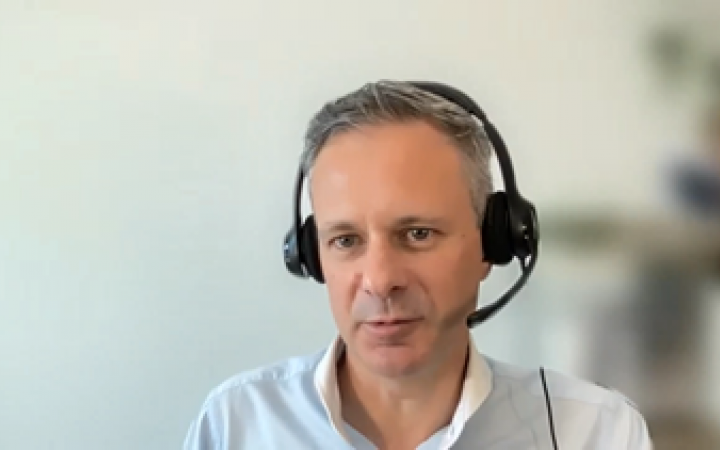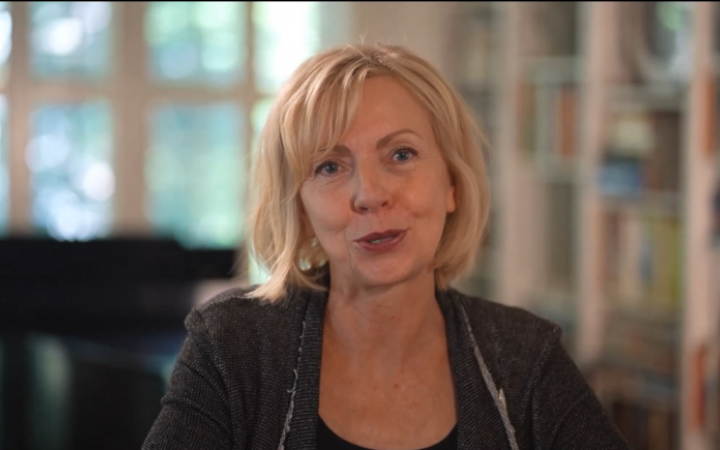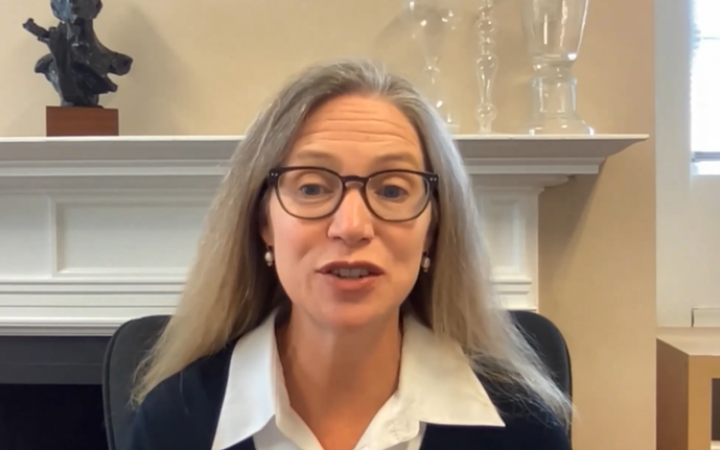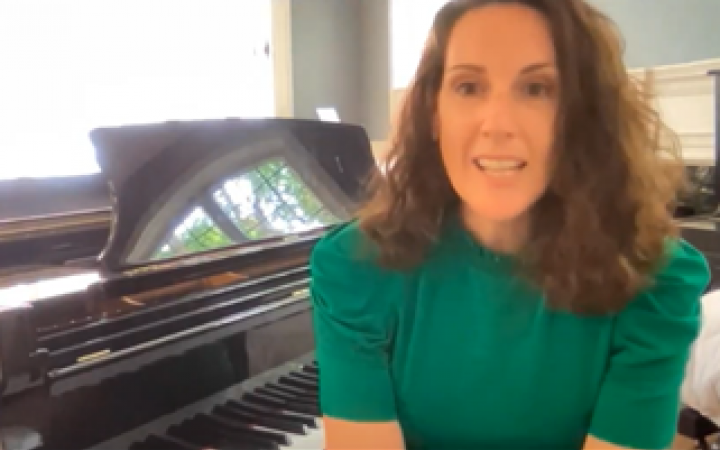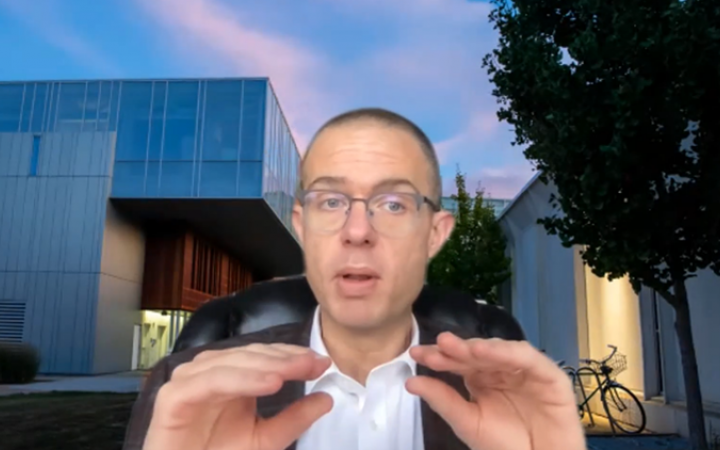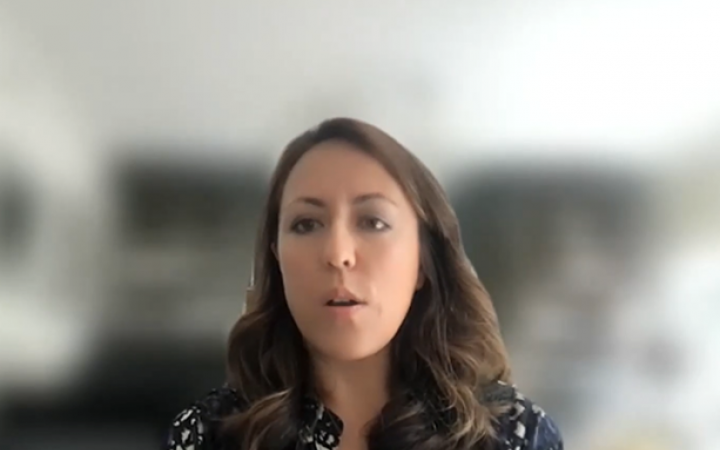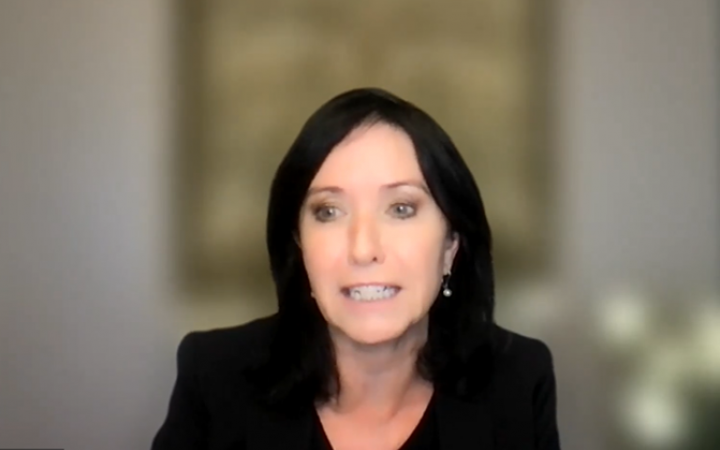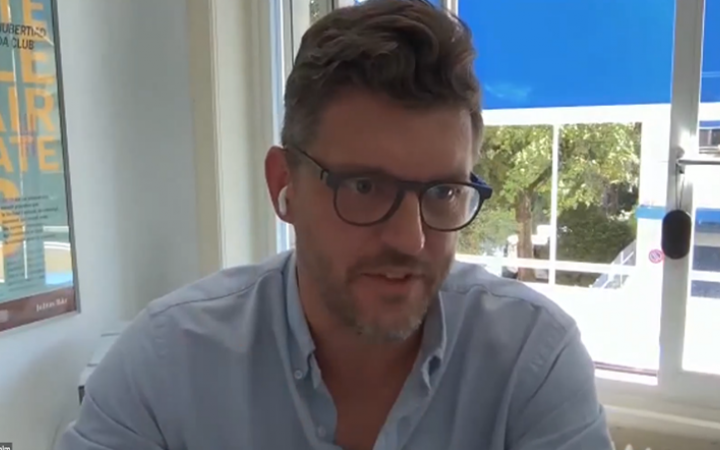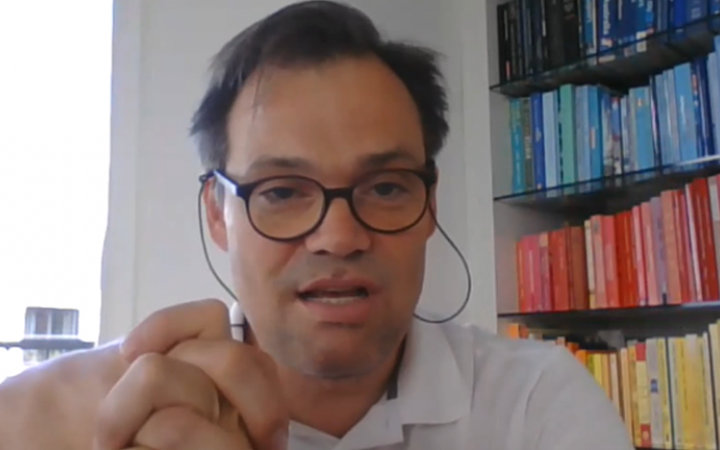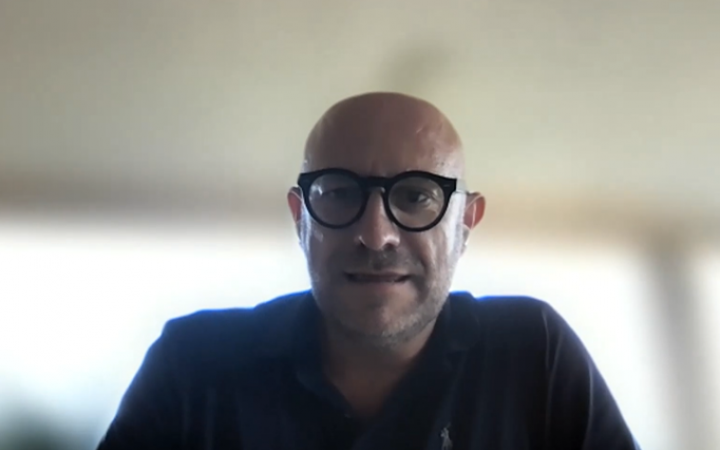New York, USA (Virtual) - The United Nations Institute for Training and Research (UNITAR) New York Office successfully held the "Music as Healing: Arts Workshop" and "Arts Education: Forward Thinking" virtual webinar in partnership with the Global Foundation for the Performing Arts (GFPA) and the Longy School of Music of Bard College. This two-day, two-session webinar series left participants from across the world with an increased understanding of not just music and art, but also how creativity could help them reach out to everyone. This event strengthened the bond between GFPA, UNITAR and the joint-partner Longy. A total of 51 participants attended the event.
The first event started at 10:00 am (EST) on August 22nd with a heartfelt opening remark delivered by Mr. Marco Suazo, the head of the UNITAR New York Office. Mr. Marco Suazo reaffirmed the continued efforts made by the performing arts industry to find new solutions to learning in response to the disruptions faced from the spread of COVID-19. "There is no human being who cannot relate to music," said Mr. Suazo. Within the United Nations, performing arts have been used for disaster risk reduction and were also used to further the UN's efforts in solving humanitarian disasters. Performing arts have always been embedded in the United Nations. Mr. Suazo started the event with a thank you to the GFPA and Longy for their continued relationship with UNITAR in education and beyond. From here, Mr. Suazo passed the floor to Mr. Benjamin Woodroffe.
Mr. Woodroffe is the President of the GFPA who is in Geneva, Switzerland. He elaborated on the strong relationship between GFPA and UNITAR during a time when culture is gaining ever more attention from across the world. It is the first time that Longy collaborates with GFPA and UNITAR, and Mr. Woodroffe was very happy to further the performing arts industry by partnering with Longy. Even though Longy was founded in 1915, it is one of the most forward-looking performing arts institutions. Mr. Woodroffe passed the floor to the two guest speakers from Longy, President Ms. Karen Zorn and Dean Dr. Judith Bose.
All three institutions have used e-learning to create a new way to teach everyone, anywhere.
Ms. Karen Zorn is the President of the Longy School of Music of Bard College. Ms. Zorn expressed her excitement about starting the new collaboration with GFPA and UNITAR. First, Longy is a music conservatory located in the Boston area founded in 1915 by George Longy. "The mission of the school is to prepare musicians to make a difference in the world," said Zorn. Second, this comes at a time when there is a need to reach out to the local communities that the artists live in to help alleviate people's lives using music. Longy aims to remove the need for technical perfection and give the student a way back to find the joy that made them start in the first place, back to when they first played their instruments and sang.
"Musicians, artists of all disciplines, are listeners, thinkers, they show up every day seeking to understand, determined to connect with others. Music has the singular ability to dispel barriers that halt other forms of communication. It can bridge lingual, cultural, and ideological divides. It can transcend, it can unite." - President Karen Zorn (Longy)
Afterward, Dean Dr. Judith Bose discussed the relationship between the student and the teacher. Windows and mirrors, explained Dean Bose, are a helpful way of visualizing teaching music. "A mirror is something that might reflect back to the student their own cultural identity or lived experience," said Dean Bose. However, "they should also have windows into new types of music, new experiences, and a new understanding." When a mirror becomes a part of the curriculum, the students at Longy will in turn receive a larger window.
After Ms. Zorn's introduction, Ms. Erin Zaffini, Director of Teaching Education, described the main components of the Master of Music in Music Education, which is a collaboration between UNITAR and Longy. Ms. Zaffini said that "[the degree] prepares students to be able to teach anyone, everywhere. It prepares educators for the kinds of community engagement and teaching music in the community."
The second webinar was in collaboration between Longy and multiple speakers from across the world. "Arts Education: Forward Thinking" started at 10:00 am (EST) on August 23rd and was a conversation-style webinar that focused on: how institutions are focused on the mechanisms of teaching music to people from across the world, how did educational models change. What predictions for future artists do we have in terms of teaching? How do the two worlds of culture and politics interact with each other? Mr. Woodworth passed the floor to the first speaker of the second day, Professor William Quillen.
Professor William Quillen is based in Ohio, USA and is a Professor of Musicology at Oberlin College and Conservatory. Oberlin focuses solely on undergraduate courses, unlike other liberal art colleges that have both undergraduate and graduate courses. One note that Prof. Quillen highlighted was how a student has only four to five years of studying at Oberlin, which makes it essential to give them the college's time and attention, he said. Moreover, at the very start of the pandemic, professors were hesitant in the way they taught in comparison to the confidence that they have today. Another important change that COVID brought to Oberlin was the shift away from basing everything on symphony orchestras and the arrival of more composition diversity. This in turn gave the students more leeway and freedom to experiment with music during their time at the College and Conservatory.
Tanya Bannister, who is a world-renowned pianist, spoke after Prof. Quillen. The Washington Post has praised Bannister for playing the piano "with intelligence, poetry and proportion." She is the president of the Concert Artists Guild and is currently working on Citizen Musician Bootcamp, a program that teaches musicians and seeks to bring a positive impact to all musicians. In terms of where teaching music currently is, Ms. Bannister thinks that it is not where it needs to be mainly because musicians need plenty of hours to improve as artists. Another point of contention discussed by Ms. Bannister is how will teachers reach beyond classical music and arrive at a new stage after that. The change lies in the way institutions advance in an industry that is receiving ever more annual graduates. Lastly, Ms. Bannister thinks that "professors and classroom teachers need to be active in the same boat and need to get out of that comfort zone [to] have these conversations." Mr. Woodroffe asked whether curiosity could be taught. She replied that it is in the parents who have a say in developing their child's curiosity.
After Ms. Bannister, the floor was passed to Professor Sheila Woodward, who is the Executive Vice-President of the International Music Council and was previously the President of the International Society for Music Education (ISME). She is also a Professor of Music and Director of Music Education at Eastern Washington University, USA. Her previous academic career was at the University of Southern California, the University of South Florida and the University of the Western Cape.
Professor Woodward presented the five music rights. Afterwards, she highlighted the economic disparities that separate lower-income communities from the economically privileged during a time that brought e-learning to people of all ages.
"Teachers have become a lifeline to many of the students that they were reaching," said Professor Woodward. At the personal level, she has seen an uptick of students who are "battling with debilitating anxiety and depression that is impacting whether they can attend classes, ever, or even manage to post any assignments online."
Professor Woodward cited Maya Angelou's quote, "Do the best you can until you know better. Then, when you know better, do better."
The fourth speaker of the day was Stephen McHolm, who is the Director of the Academy & Unlimited (Cultural Engagement) of the Verbier Festival. Before arriving in Switzerland, McHolm spent twelve years in Canada helping the Honens International Piano Competition Foundation to become one of the world's best international music institutions. McHolm hosts music students from across the world in Switzerland and puts them through several programs, focusing mainly on soloists. An issue that McHolm, which was also pointed out by several others, was how music lovers have been slow in getting back to attend orchestras after covid, which in turn has forced musicians to rethink their roles as artists. He used President Karen Zorn's question: "what gives musicians joy?" Moreover, he pointed out how the industry has set an "international standard" where everyone needs to reach beyond their own borders, which McHolm believes does not hold any validity in making the international musician any better than the local one. A question raised by McHolm was "what does it mean for you to be an artist?" McHolm has noticed that giving back to the community has been the answer from the 1600 applications that his foundation received this year.
The fifth speaker of the day was Professor Stephan Frucht, who received his violin diploma from the Universität der Künste in Berlin and studied conducting at the City's Hanns Eisler Hochschule Hochschule für Musik. He was also the expert advisor for the German Parliament on culture. Afterwards, he was the Executive Director for a German association that helped local businesses in supporting upcoming artists under the name of the Federation of German Industries. He also headed the Arts Foundation of Germany's business community.
Frucht praised the internationality of the panelists and highlighted how UNITAR and GFPA have a rare event in terms of bringing talented individuals to one event. Two issues raised by Stephan Frucht were the inability to play an instrument or sing music during a war and the arrival of content to people's homes through Netflix. The latter stops people from heading out to see the orchestras physically and the former stops the musician from doing his job. Lastly, Professor Frucht highlighted how important cultural education is to have a better society, but also the need of putting it on a platform to highlight its value to a broader policy.
The last speaker of the day was Professor Andrea Rurale, who is a lecturer at the Department of Marketing at Università Bocconi and is the Director of the Master in Arts Management and Administration (MAMA). His research focuses on cultural marketing, consumer behaviour, experimental marketing, CRM and marketing communication. He has earned a degree from Università Bocconi and a PhD in Marketing from Universitat de València.
He started off his discussion with how artists can place themselves in an ever-changing and competitive market. Artists face difficulties in presenting and promoting themselves to the public. Music and culture are important soft powers, and artists tend to forget that he said. Secondly, he expanded on how Netflix is proposing something that the customer wants, because of the consumer-based algorithm that the streaming service has. He put the old school theatre in comparison to Netflix, where the former cannot risk promoting a film with the risk of not having a fully booked theatre. Meanwhile, the latter can easily do that without risking losing the subscriber. Young people, Professor Rurale said, may have never listened to classical music, so exposing them to it and promoting it for only a short period of time may lead to them being immersed in it just like Netflix does for its subscriber.

